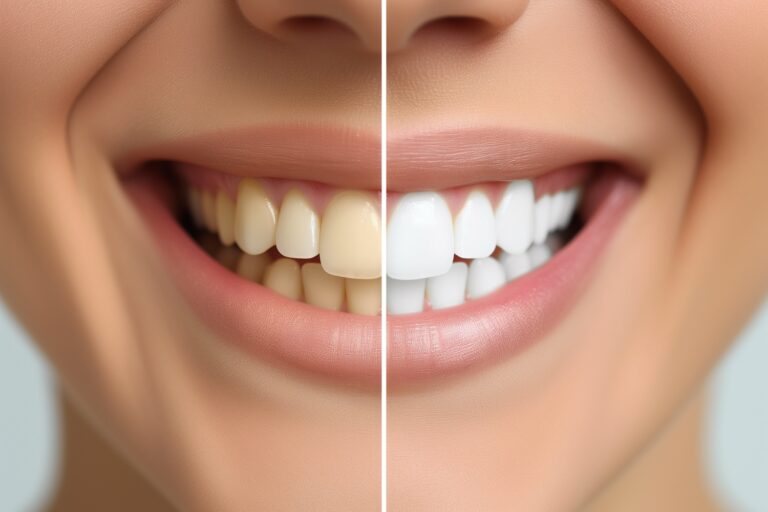Tooth sensitivity can turn a simple pleasure like sipping a hot cup of coffee into an excruciating experience. If you’ve ever winced in pain while enjoying your favorite foods, you’re not alone. Tooth sensitivity is a common dental issue that affects many individuals. Learn more about the causes and discover practical tips on how to prevent and manage it.
Understanding Tooth Sensitivity
Tooth sensitivity typically occurs when the protective enamel on our teeth wears down, exposing the underlying dentin and nerve endings. This can be caused by exposed roots, cavities or worn fillings. Common triggers include hot or cold foods, sweet treats and acidic beverages.
Preventive Measures:
- Maintain Good Oral Hygiene: Regular brushing and flossing are the first lines of defense against tooth sensitivity. Use a soft-bristled toothbrush and fluoride toothpaste to gently clean your teeth without causing further enamel erosion.
- Choose the Right Toothbrush: Opt for a toothbrush with soft bristles to minimize enamel wear. Gentle, circular motions during brushing help prevent abrasion and protect your teeth.
- Use Desensitizing Toothpaste: Consider using a desensitizing toothpaste that can help block pain signals from reaching the nerves in your teeth. Make it a part of your daily oral care routine.
- Limit Acidic Foods and Drinks: Acidic foods and beverages can contribute to enamel erosion. Reduce your intake of citrus fruits, sodas and other acidic items to safeguard your tooth enamel.
- Protect Against Teeth Grinding: If you grind your teeth at night, consider wearing a night guard. Teeth grinding can lead to enamel wear and increased sensitivity.
Management Strategies:
- Rinse with Fluoride Mouthwash: Rinse your mouth with a fluoride mouthwash to strengthen enamel and reduce tooth sensitivity.
- Avoid Overbrushing: Brushing too hard can exacerbate tooth sensitivity. Be gentle, and use a soft touch during your oral care routine.
- Address Gum Recession: If gum recession is contributing to sensitivity, your dentist may recommend treatments to address the issue, such as gum grafts.
Don’t let tooth sensitivity dictate your dietary choices or affect your daily life. By taking proactive measures, you can effectively prevent and manage this dental issue. If you’re experiencing any tooth sensitivity, schedule an appointment at Beall Dental Center. We can identify the root cause and help you enjoy a pain-free, sensitive-free smile.





